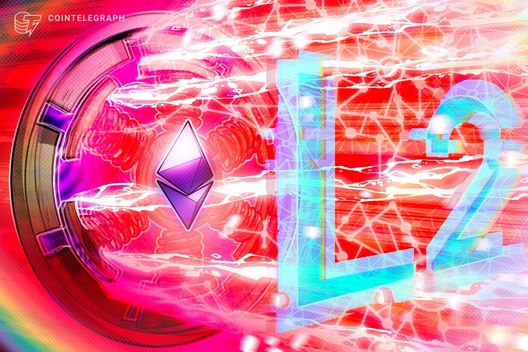In a bold statement that has sparked considerable discussion within the cryptocurrency community, Anatoly Yakovenko, co-founder of the Solana blockchain, has raised concerns about the security and centralization challenges faced by Ethereum layer-2 networks. As the race for scalability and improved transaction speeds intensifies, Ethereum’s layer-2 solutions, which aim to enhance the original blockchain’s capabilities, may be walking a fine line between innovation and vulnerability.
Yakovenko’s critique emphasizes the potential risks associated with these secondary networks, suggesting that while they offer promising solutions to Ethereum’s congestion issues, they also carry serious implications for user security. This insight comes at a time when decentralization remains a cornerstone principle in the cryptocurrency space, prompting many to question whether these layer-2 solutions might inadvertently compromise the very values that underpin blockchain technology.
“While these layer-2 networks can provide efficiency, we must not overlook the fundamental aspects of security and decentralization that are vital to the integrity of the blockchain ecosystem,” Yakovenko stated.
This revelation serves as a timely reminder for both developers and users alike to consider the broader implications of adopting layer-2 solutions. As the conversation around blockchain technology evolves, the need for secure and decentralized systems grows increasingly critical. The ongoing dialogue initiated by Yakovenko’s observations is sure to shape future innovations in the world of cryptocurrency.
Ethereum Layer-2 Networks Security Concerns
Key points regarding the security and centralization issues in Ethereum layer-2 networks as highlighted by Anatoly Yakovenko:
- Security Vulnerabilities:
- Layer-2 networks may expose users to various security risks.
- Underestimated risks can lead to significant financial losses.
- Centralization Problems:
- Some layer-2 solutions exhibit a tendency towards centralization.
- This centralization undermines the foundational principles of decentralization in blockchain technology.
- Impact on Users:
- Increased awareness is essential for users to protect their assets.
- Users may need to reconsider their reliance on certain Ethereum layer-2 options.
- Broader Industry Implications:
- Concerns raised may influence developers and investors to prioritize security features.
- This may shift the focus towards more resilient solutions across the blockchain ecosystem.
Examining Security Concerns in Ethereum Layer-2 Networks
In the ongoing discussion about blockchain technology, recent insights from Anatoly Yakovenko, the co-founder of the Solana blockchain, highlight significant security and centralization vulnerabilities within Ethereum’s layer-2 solutions. This revelation comes at a critical juncture as Ethereum-based projects strive to enhance scalability and transaction efficiency.
Yakovenko’s remarks put a spotlight on a competitive disadvantage for Ethereum when compared to faster and more decentralized alternatives, such as Solana and even newer contenders entering the market. While Ethereum remains a leading platform in terms of smart contracts and developer activity, its layer-2 networks are perceived as susceptible to attacks and governance issues stemming from centralization. In contrast, Solana’s high throughput and robust security protocols position it favorably among developers seeking a reliable blockchain foundation.
These concerns could resonate heavily with projects and developers deeply invested in the Ethereum ecosystem, potentially motivating them to explore alternative networks like Solana, which offers a more decentralized approach. Conversely, existing Ethereum users may experience hesitancy about future investments due to the highlighted risks, prompting a scrutiny of layer-2 networks that could ultimately weaken user confidence.
Moreover, the implications extend beyond developers to influence investors and end-users, who may diversify their investments into ecosystems with perceived lower risk profiles. Yakovenko’s comments may serve as a catalyst for innovation, pushing Ethereum to address these vulnerabilities rapidly; however, if improvements lag, Ethereum might risk ceding ground to rival networks that emphasize security and decentralization.
















